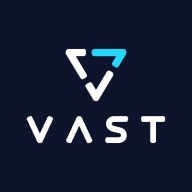

Databricks and VAST Data are key competitors in the data management field. Databricks holds an advantage in data processing and analytics, while VAST Data shines in storage solutions.
Features: Databricks offers robust analytics capabilities, machine learning integration, and collaborative data science tools. VAST Data provides high-performance storage, resilience, and scalability.
Ease of Deployment and Customer Service: Databricks supports rapid implementation with a flexible cloud-based model. VAST Data features hardware-agnostic architecture for seamless integration. VAST Data provides reliable customer service, while Databricks offers extensive support for deploying complex data pipelines.
Pricing and ROI: Databricks has a broad pricing structure accommodating diverse analytics needs, offering potential for significant ROI through advanced insights. VAST Data provides lower storage costs with high durability, delivering compelling ROI for large-scale data storage.
| Product | Market Share (%) |
|---|---|
| Databricks | 10.0% |
| Snowflake | 15.9% |
| Teradata | 8.4% |
| Other | 65.7% |
| Product | Market Share (%) |
|---|---|
| VAST Data | 6.2% |
| Dell PowerStore | 19.6% |
| NetApp AFF | 15.9% |
| Other | 58.3% |


| Company Size | Count |
|---|---|
| Small Business | 26 |
| Midsize Enterprise | 12 |
| Large Enterprise | 56 |
Databricks offers a scalable, versatile platform that integrates seamlessly with Spark and multiple languages, supporting data engineering, machine learning, and analytics in a unified environment.
Databricks stands out for its scalability, ease of use, and powerful integration with Spark, multiple languages, and leading cloud services like Azure and AWS. It provides tools such as the Notebook for collaboration, Delta Lake for efficient data management, and Unity Catalog for data governance. While enhancing data engineering and machine learning workflows, it faces challenges in visualization and third-party integration, with pricing and user interface navigation being common concerns. Despite needing improvements in connectivity and documentation, it remains popular for tasks like real-time processing and data pipeline management.
What features make Databricks unique?
What benefits can users expect from Databricks?
In the tech industry, Databricks empowers teams to perform comprehensive data analytics, enabling them to conduct extensive ETL operations, run predictive modeling, and prepare data for SparkML. In retail, it supports real-time data processing and batch streaming, aiding in better decision-making. Enterprises across sectors leverage its capabilities for creating secure APIs and managing data lakes effectively.
Innovation to break decades of data storage trade-offs.
We monitor all Cloud Data Warehouse reviews to prevent fraudulent reviews and keep review quality high. We do not post reviews by company employees or direct competitors. We validate each review for authenticity via cross-reference with LinkedIn, and personal follow-up with the reviewer when necessary.